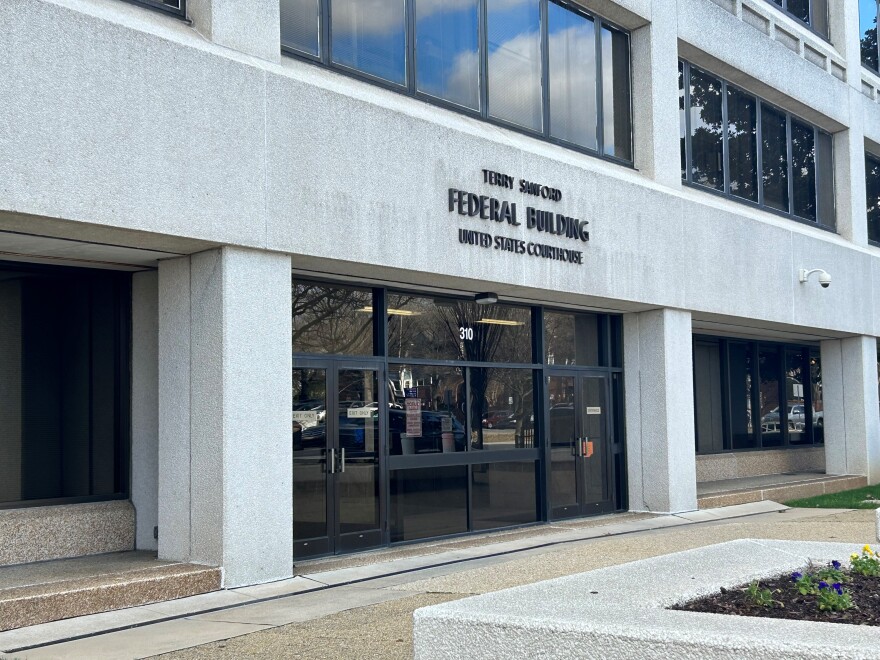Attorneys for two Black men challenging North Carolina's newly drawn state senate district map faced aggressive questioning from a federal judge on Wednesday.
Judge James Dever III — nominated to the federal bench in 2005 by former President George W. Bush — seemed skeptical of the central claim being made in the racial gerrymandering lawsuit: that Republican legislators in the GOP-controlled North Carolina General Assembly purposely drew district lines to dilute the power of Black voters in the northeastern part of the state.
The two plaintiffs in the suit come from Martin and Halifax counties, both part of an area known as North Carolina's Black Belt. Their lawsuit claims GOP lawmakers broke up Black communities and divided them between two districts to deprive them of the opportunity to collectively elect candidates of their choice.
The lawsuit further claims that Republicans ignored warnings from Democrats and civil rights advocates that minority protections under the Voting Rights Act of 1965 require a so-called racially polarized voting analysis before district lines are drawn.
Hanging over the legal arguments is the looming 2024 primaries in March. Requested absentee ballots start getting mailed out on Jan. 19.
The imminent primaries notwithstanding, State Sen. Dan Blue, Democratic Minority Leader, insisted there is time to block the challenged map and order redrawn districts.
"There's no real concern now that time is as much a factor," Blue told reporters outside the federal courthouse after Wednesday's hearing.
Blue suggested the districts could be redrawn and that primaries in those districts could be held in May when other districts would be holding primary run-offs.
Blue argued that North Carolinians' fundamental right to vote is at stake, adding that in the early 2010s Black voters in some North Carolina districts voted under maps that eventually got thrown out for being unconstitutionally gerrymandered on the basis of race.
"That's the real concern," Blue said. "That the voters in northeastern North Carolina, not just the African American voters, but all the voters in northeastern North Carolina, have the privilege and opportunity of voting under legal maps."
Blue went on to accuse GOP lawmakers of purposely delaying the redistricting process to create a time crunch.
"We've known since last March that [the maps] would be redrawn yet they weren't done until the end of October," Blue said.
Last April, the Republican-majority North Carolina Supreme Court, after granting GOP lawmakers' request to revisit an earlier partisan gerrymandering ruling that had gone against them, reversed the decision and paved the way for new legislative and Congressional maps. Lawmakers put off drawing the new maps until after they wrapped up the biennial budget process.
Attorneys for the GOP legislative defendants said the map is legal and that the lawsuit is really just Democratic frustrations over partisan disadvantages masquerading as a racial gerrymandering claim.
Republicans like State Senate Redistricting Co-Chair Ralph Hise — who spoke with WUNC in late September when legislators were about to draw their maps — defend their choice not to consider race in drawing political boundaries.
"I think very much that you can comply with the Voting Rights Act without using racial data," Hise said at the time.
Two other federal lawsuits are challenging GOP redistricting plans on racial grounds. One would block the Congressional map's use for this year, the other would require new maps altogether for 2026.







